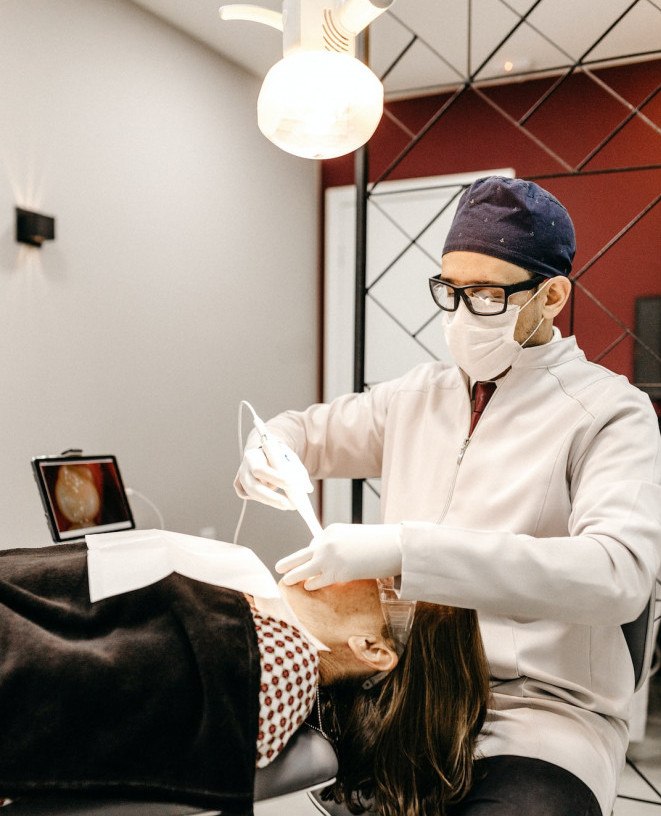Key Takeaways
- Wisdom teeth are the last adult teeth to emerge, typically between the ages of 17 and 25.
- Impacted wisdom teeth can cause pain, discomfort, sensitivity, and swelling in the jaw.
- Symptomatic wisdom teeth should be removed as soon as possible to prevent complications.
- Recovery time after wisdom tooth removal varies, but with pain medication, normal activities can be resumed within a few hours.
What You Need to Know About Top wisdom tooth extraction
The extraction of the top wisdom tooth is a common dental procedure that involves the removal of the upper wisdom tooth. This procedure is often necessary when the top wisdom tooth is causing pain, discomfort, or other complications. It can also be done preventively if there is not enough room in the mouth for the wisdom teeth to fully emerge. Recovery after top wisdom tooth extraction typically takes about a week, with initial pain and swelling subsiding within a few days. Complications from the procedure are rare but can include infection, tooth root fracture, dry socket, and numbness or altered sensation. Following the extraction, it is important to eat soft foods and avoid chewing on the operated side until fully healed.Some notes on Lower Wisdom Tooth Extraction
In the context of wisdom tooth extraction, the removal of the lower wisdom tooth is a common dental procedure that involves extracting the wisdom tooth located in the lower jaw. Here are some key points to note about lower wisdom tooth extraction:- Lower wisdom tooth extraction is typically performed under local anesthesia to numb the area and ensure a pain-free procedure.
- The dentist or oral surgeon will use dental tools to elevate and grasp the tooth before gently pulling it out.
- In some cases, lower wisdom tooth surgery may be necessary if the tooth is impacted or difficult to extract.
- The recovery period for lower wisdom tooth extraction varies, but generally, patients can resume normal activities within a few days.
- Possible complications of lower wisdom tooth extraction include infection, tooth root fracture, dry socket, and temporary numbness or altered sensation in the jaw or chin.
Is Wisdom Teeth Extraction Really Necessary? Debunking the Myths
Contrary to popular belief, there are several myths surrounding the necessity of wisdom teeth extraction. One common myth is that all wisdom teeth must be removed to avoid future problems. However, the truth is that not everyone needs their wisdom teeth removed. The decision to extract wisdom teeth depends on various factors such as the presence of symptoms, the position of the teeth, and the recommendation of the dentist. Another myth is that wisdom teeth always cause crowding of the other teeth. While this can happen in some cases, it is not always the case. It is important to consult with a dentist to determine the individual need for wisdom teeth extraction.Post-Extraction Diet – What to Eat After Wisdom Teeth Removal
After undergoing wisdom tooth extraction, it is essential to adhere to a post-extraction diet to ensure proper healing and minimize discomfort. Here are some dietary guidelines to follow:- Stick to a soft food diet: Opt for foods that are easy to chew and swallow, such as soups, mashed potatoes, yogurt, smoothies, and scrambled eggs.
- Avoid hard, crunchy, and sticky foods: These can irritate the extraction site and potentially dislodge the blood clot, leading to complications.
- Maintain hydration: Drink plenty of water and avoid using a straw, as the suction can also dislodge the blood clot.
- Avoid hot and spicy foods: These can cause discomfort and irritation to the extraction site.
- Gradually reintroduce solid foods: As the healing progresses, slowly reintroduce solid foods into your diet, starting with softer options like cooked vegetables and pasta.
Navigating Recovery After Wisdom Teeth Extraction – Tips and Advice
Recovery after wisdom teeth extraction requires careful attention and adherence to post-operative instructions. Following these tips and advice can help navigate the recovery process more smoothly. It is important to rest and avoid strenuous activities for the first few days. Chewing on the operated side should be avoided, and soft foods should be consumed on the unoperated side. Gradually resuming regular activities after 2-3 days is recommended, but strenuous activity should still be avoided. Taking prescribed pain medications with food can help alleviate nausea or vomiting. Blood clots are crucial for healing, so they should not be dislodged within the first 24 hours. Using cold compresses and anti-inflammatory medications can help reduce swelling. Regular dental visits are also important for monitoring the development of wisdom teeth and identifying potential problems.Wisdom Teeth Extraction – Understanding Potential Complications and How to Prevent Them
Potential complications can arise during wisdom tooth extraction, and understanding how to prevent them is crucial for a successful procedure. To minimize the risks and ensure a smooth recovery, follow these preventive measures:- Choose an experienced oral surgeon or dentist who specializes in wisdom tooth extraction.
- Provide a complete medical history and inform the healthcare professional about any medications or allergies.
- Follow all pre-operative instructions, including fasting before the surgery.
- Take prescribed antibiotics or pain medications as directed to prevent infection and manage discomfort.
- Practice good oral hygiene by gently rinsing the mouth with antiseptic mouthwash and avoiding vigorous brushing near the extraction site.
Can Advanced Periodontal Disease Affect Wisdom Tooth Extraction?
Yes, advanced periodontal disease can affect wisdom tooth extraction. If the disease has caused severe bone loss, it can make the extraction more complex and could lead to complications. It’s important to seek treatment for advanced periodontal disease before considering wisdom tooth extraction to minimize risks and ensure successful outcomes.

